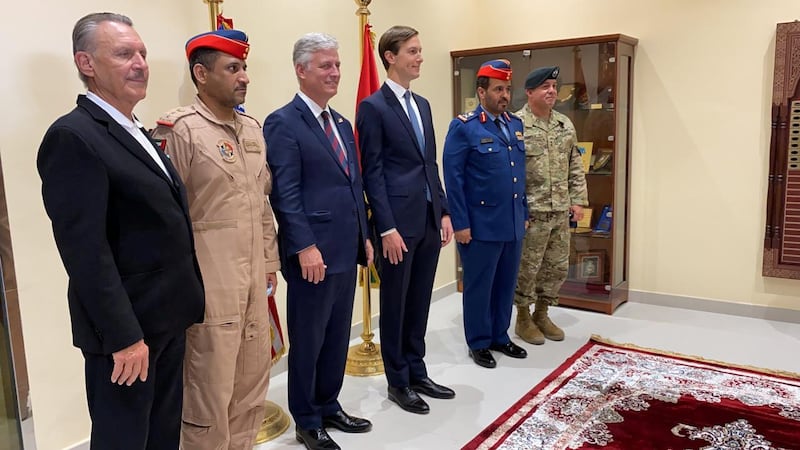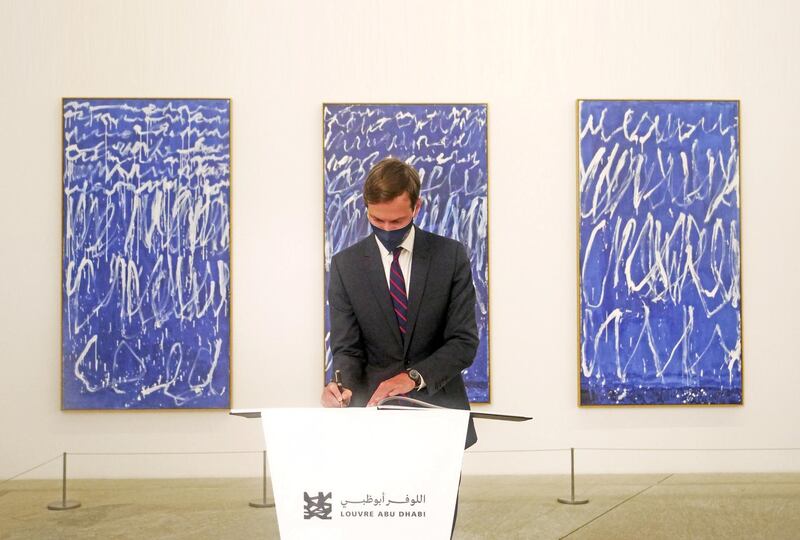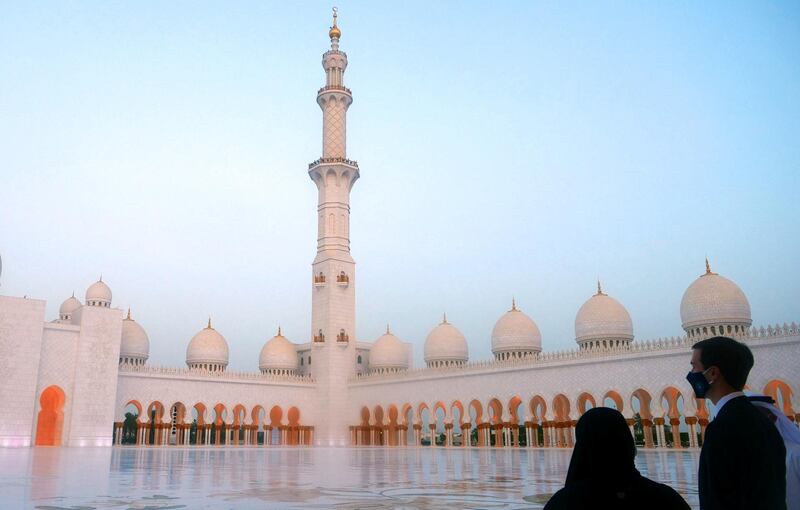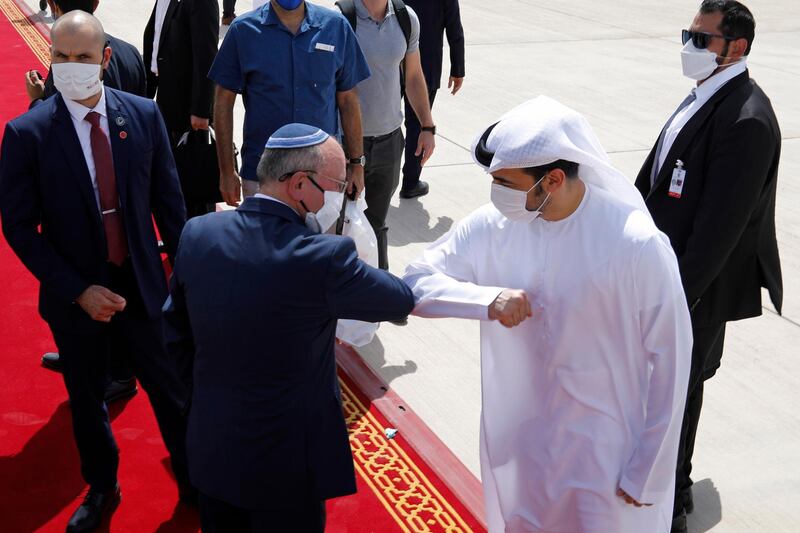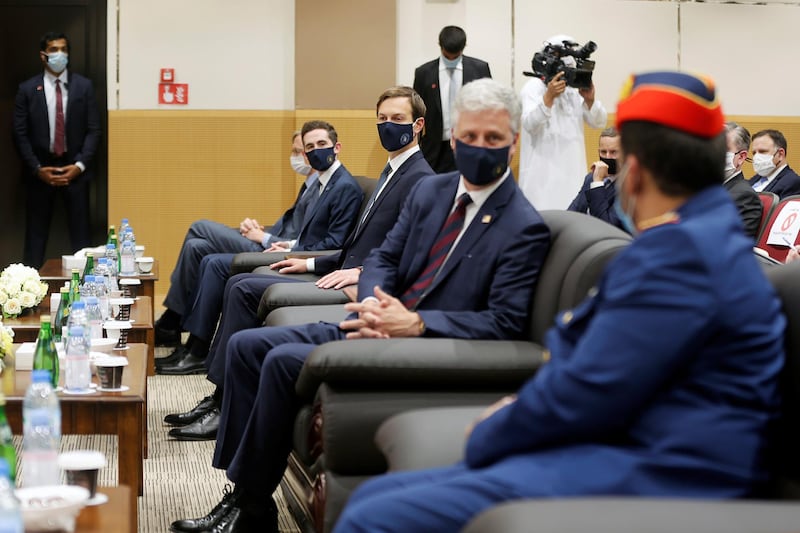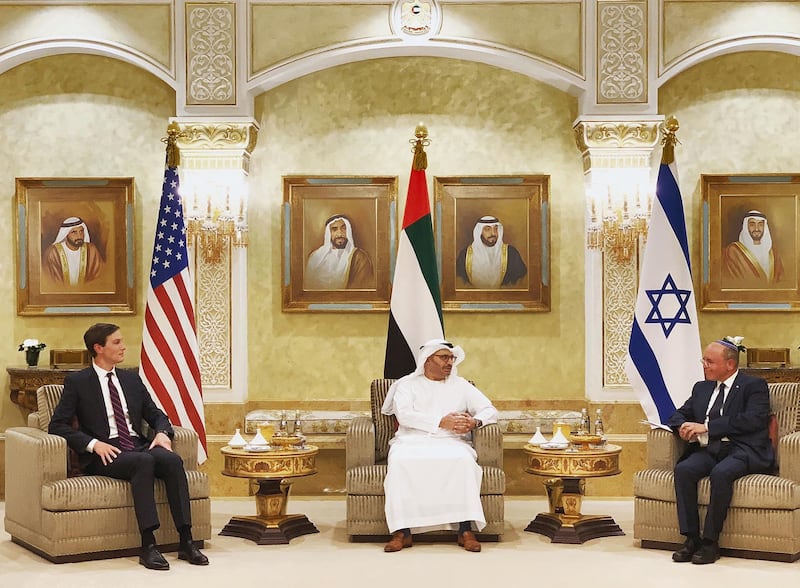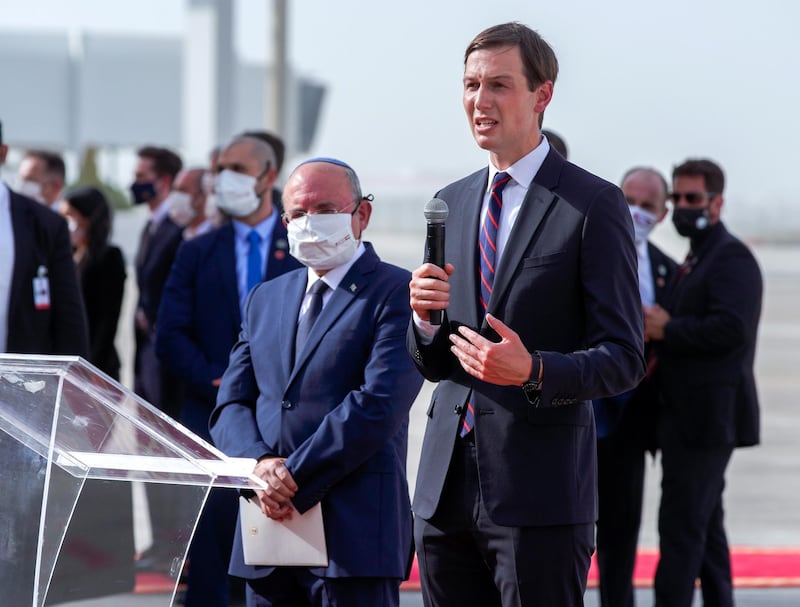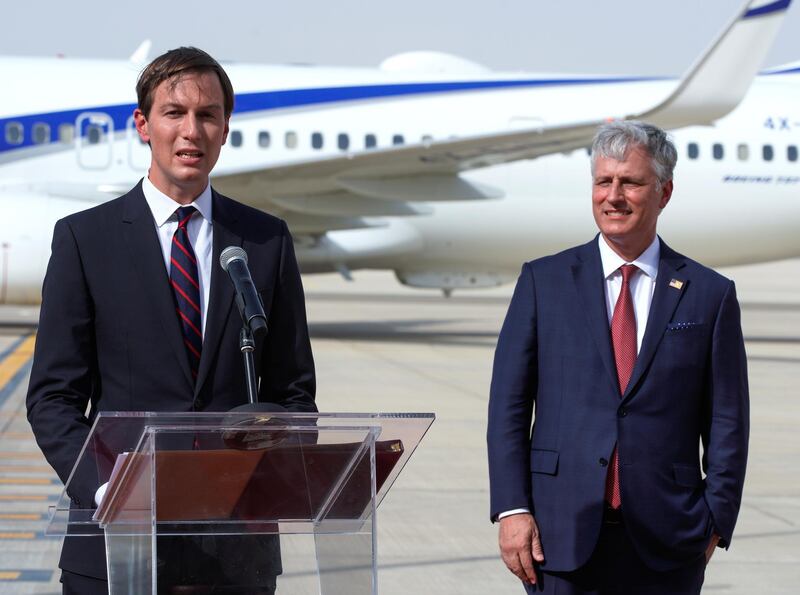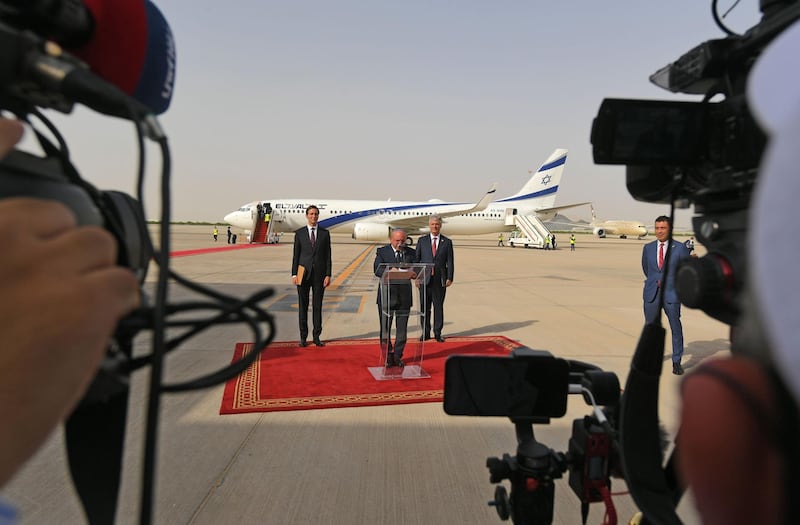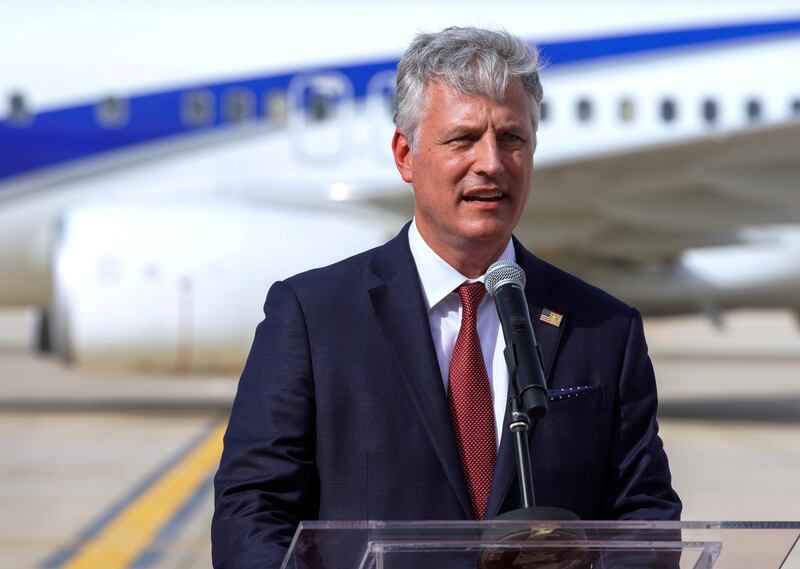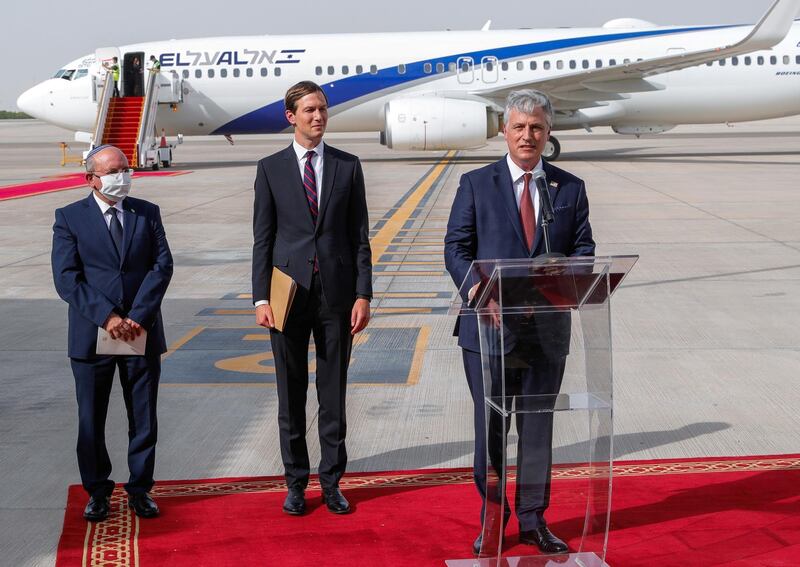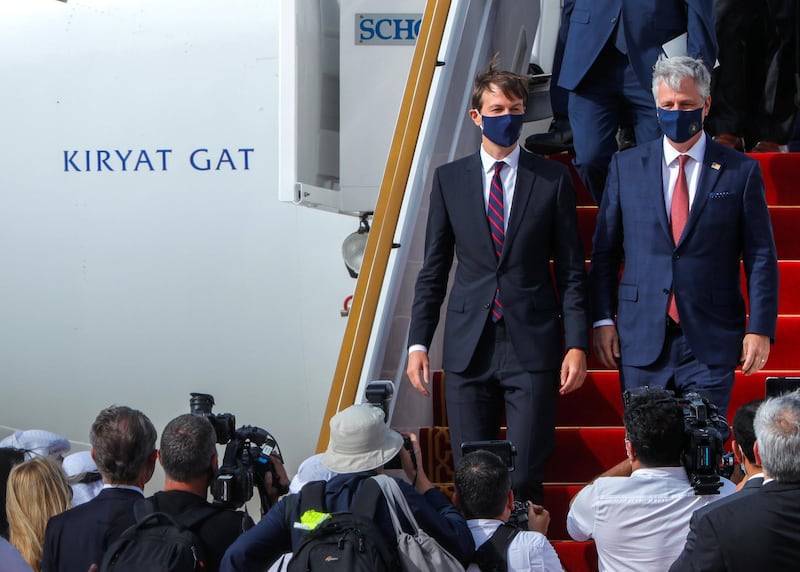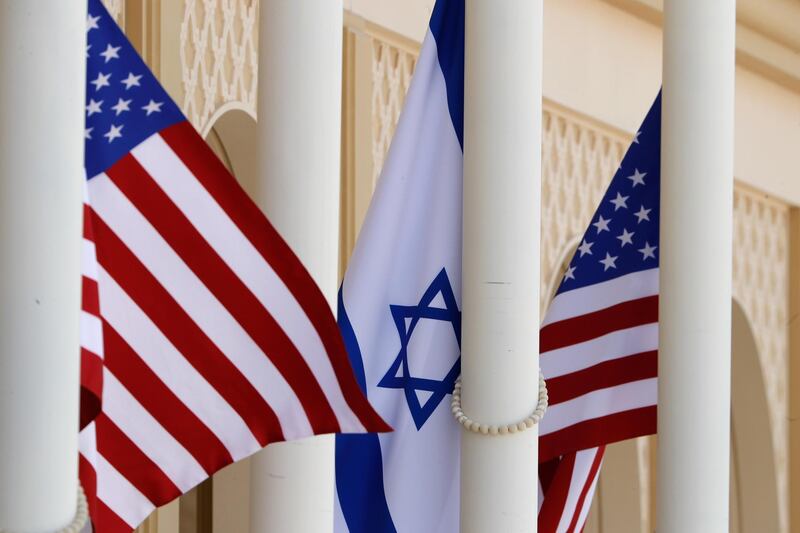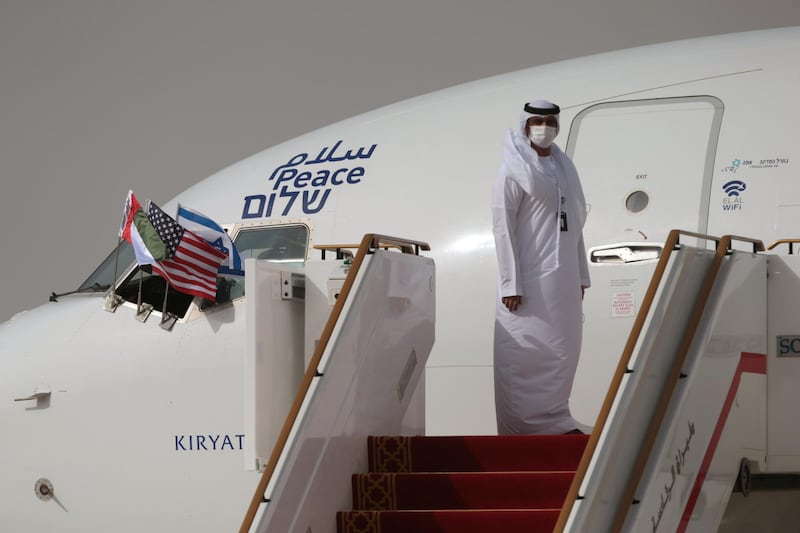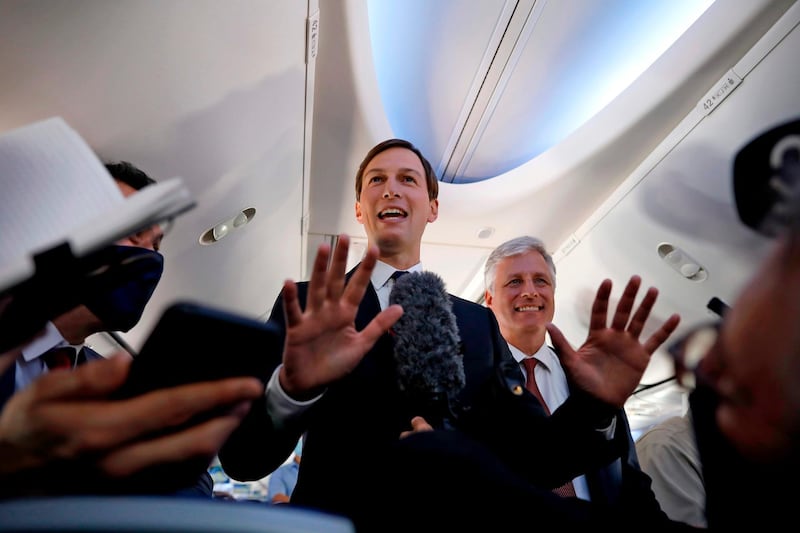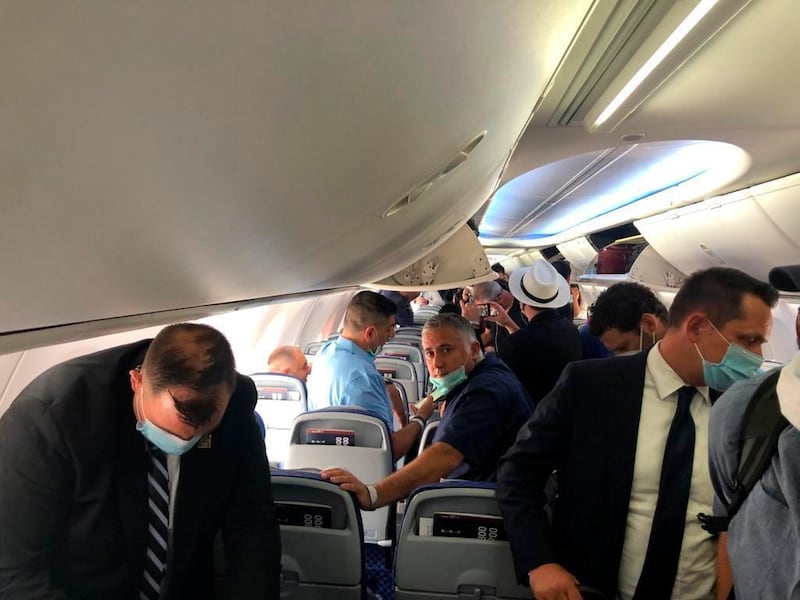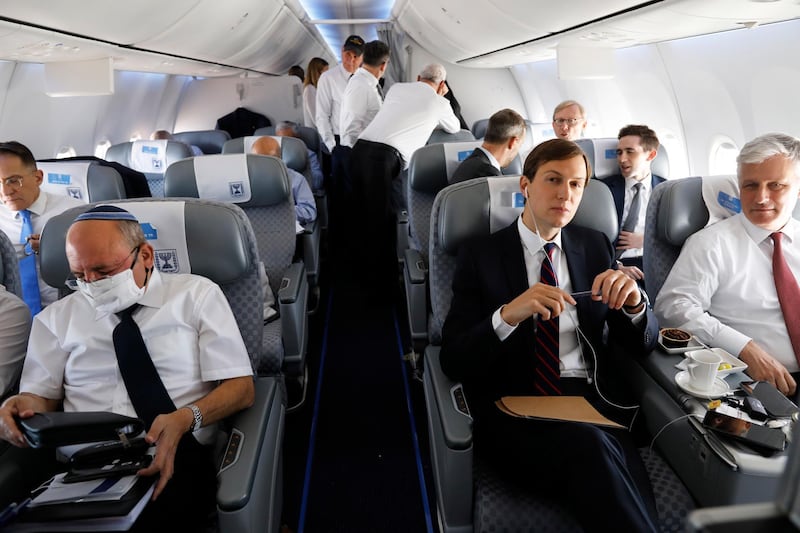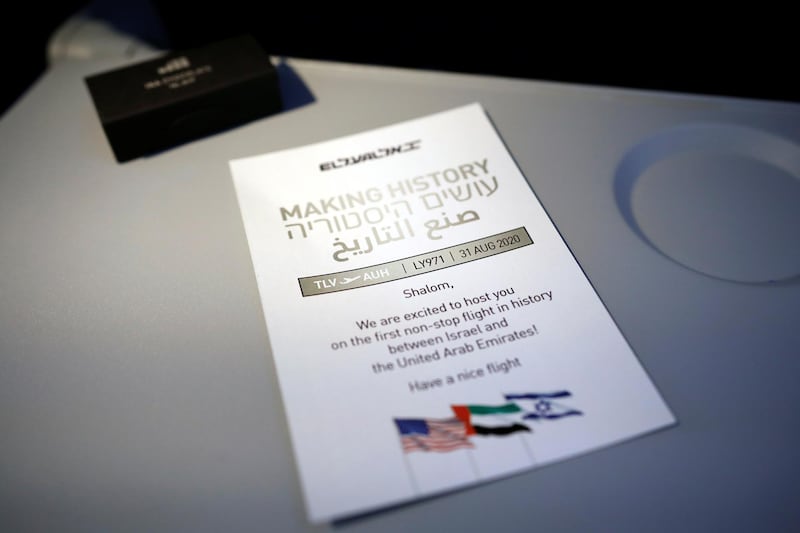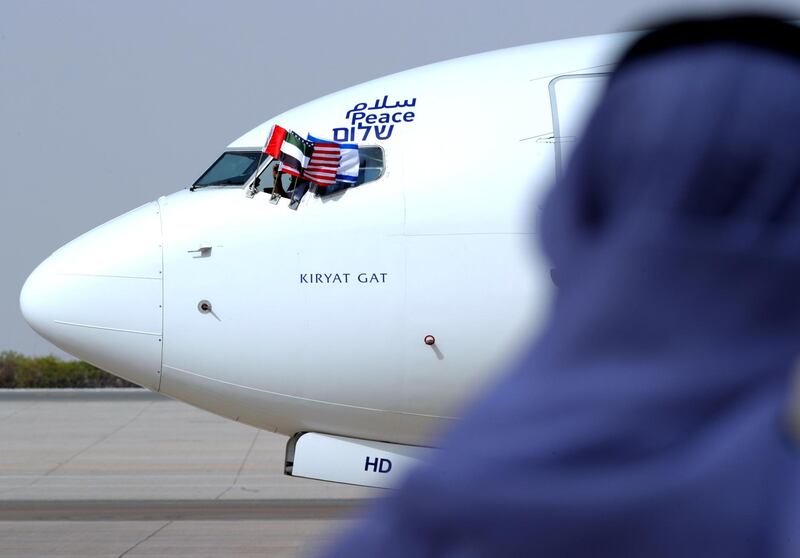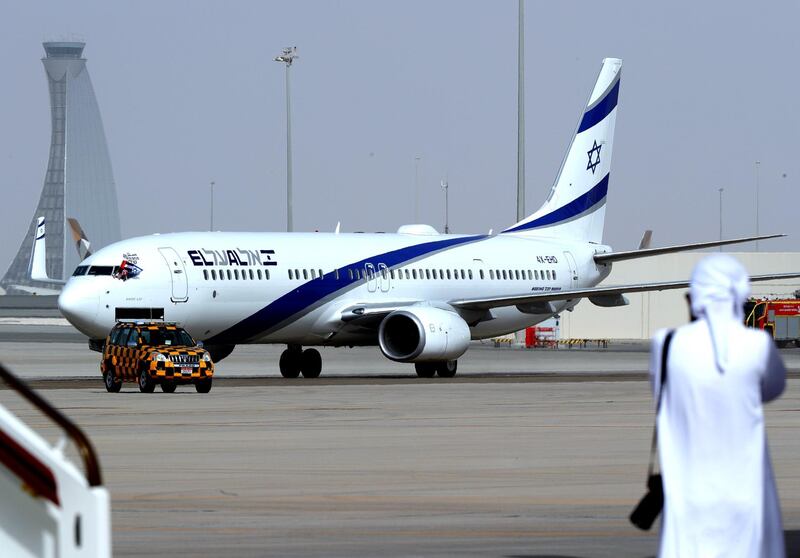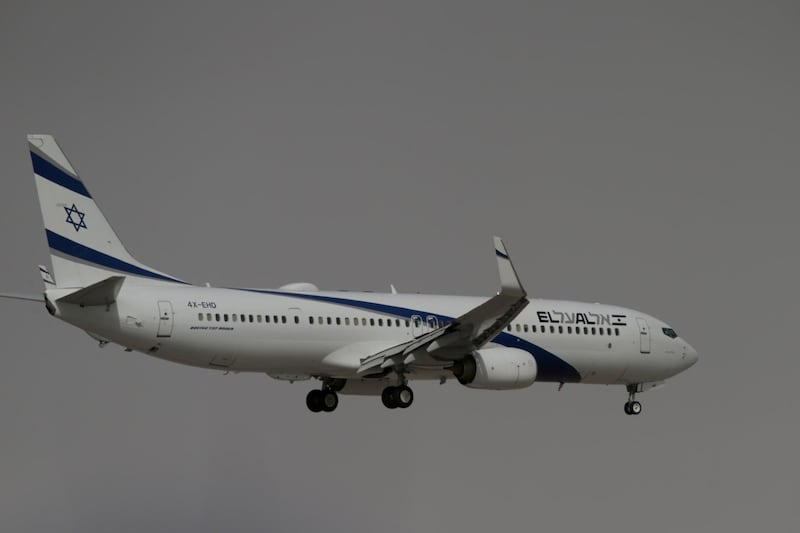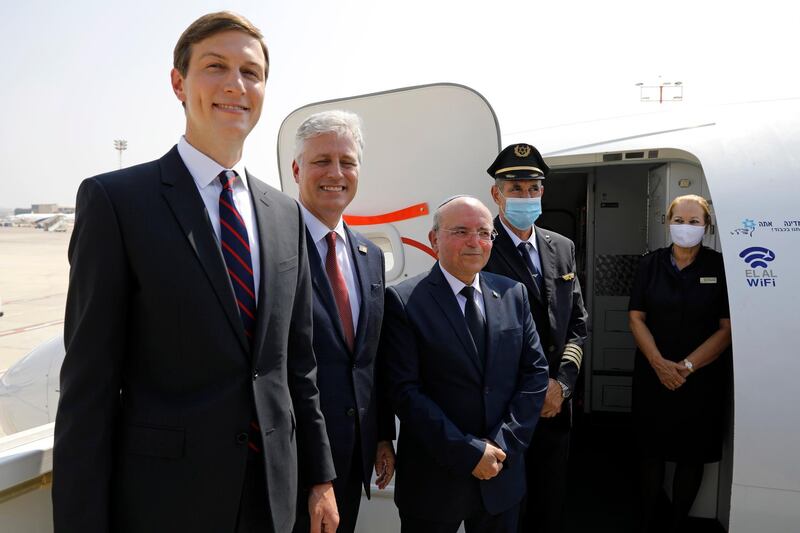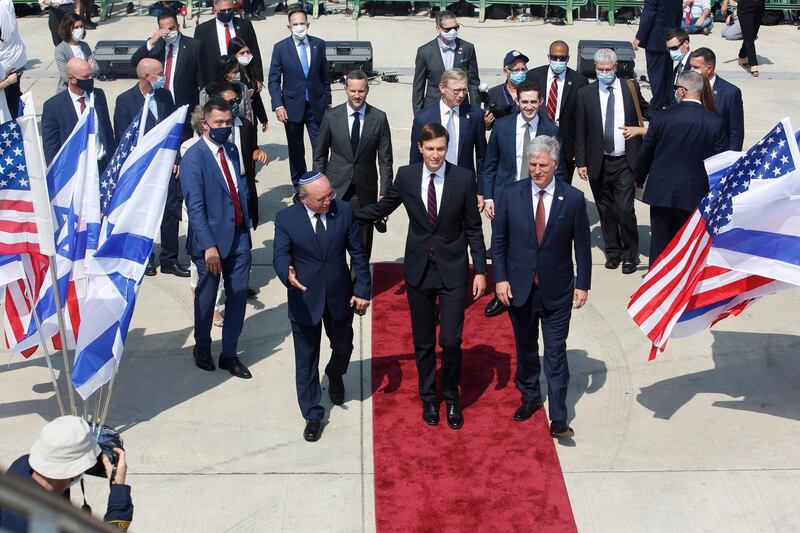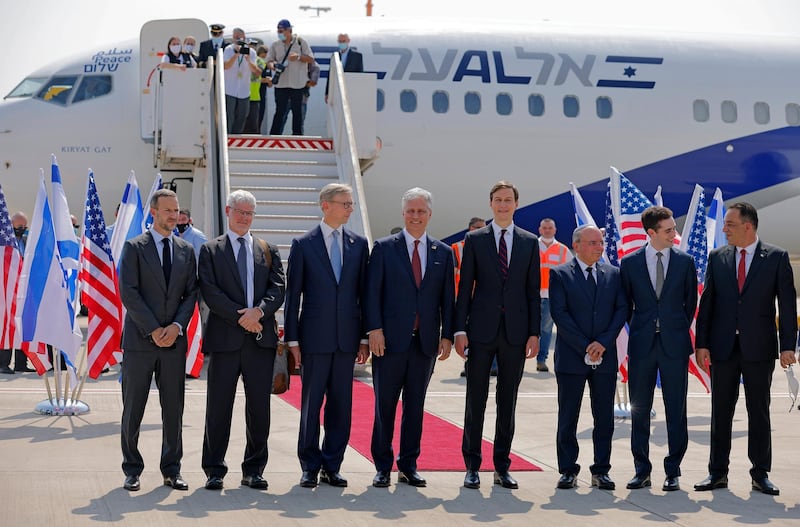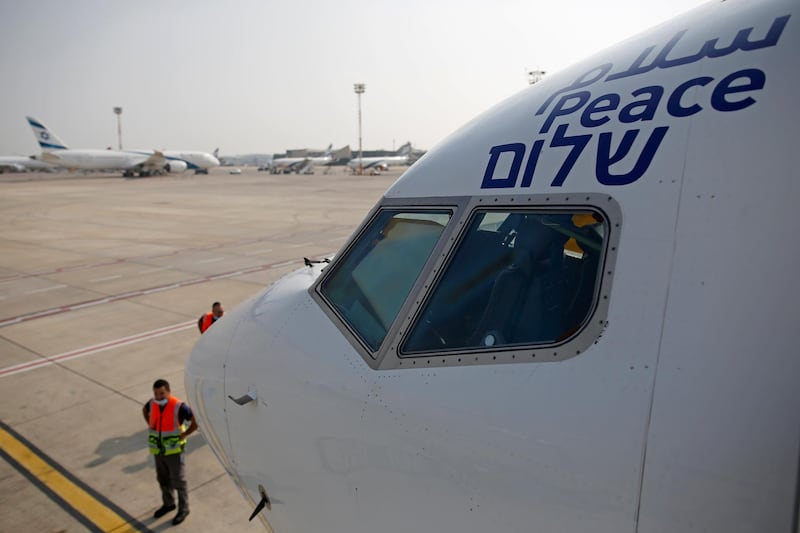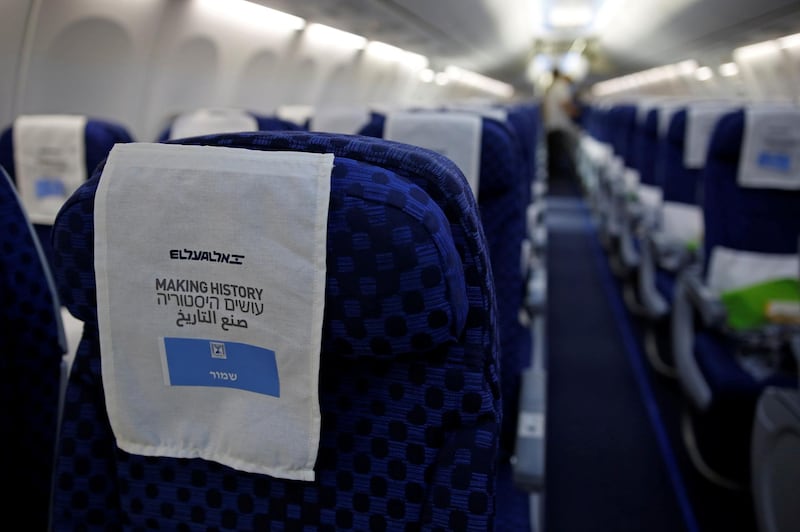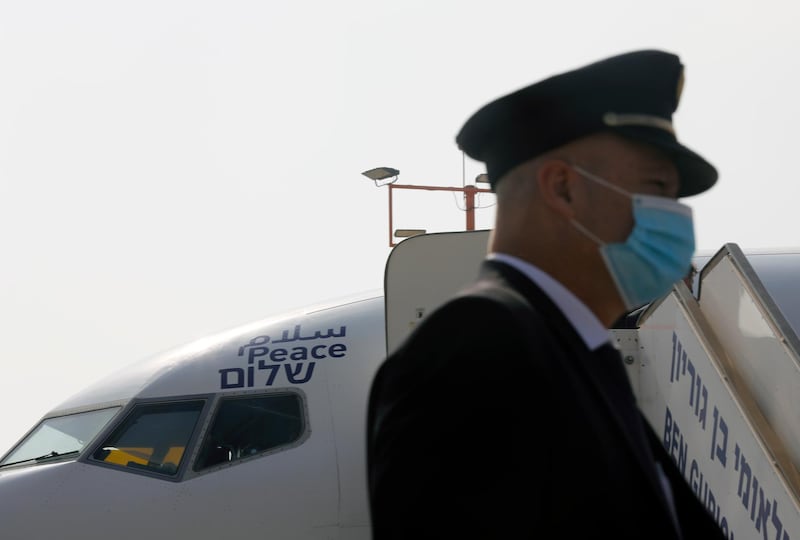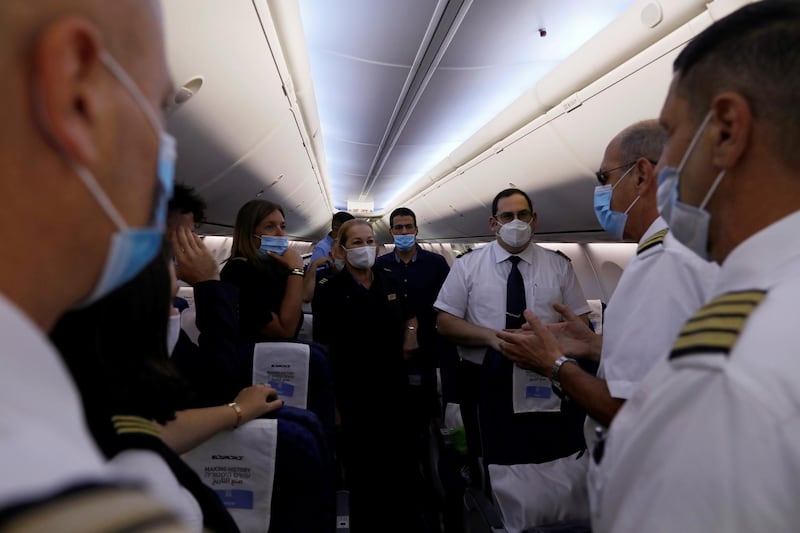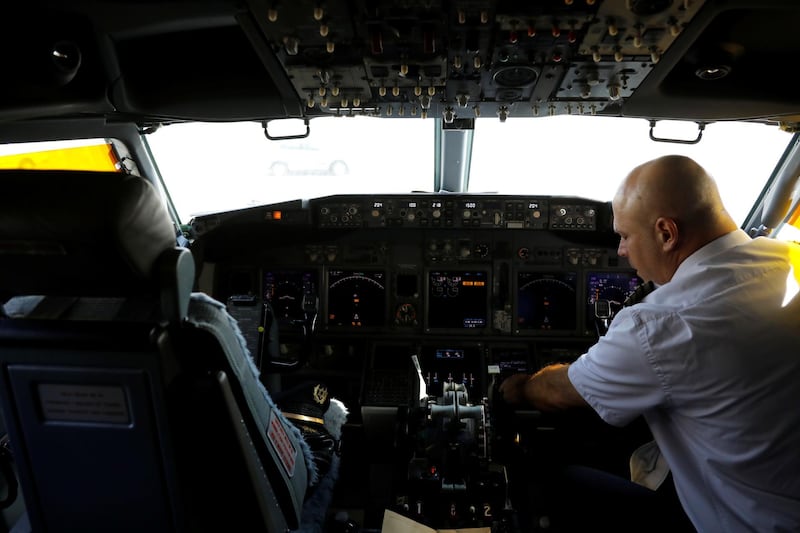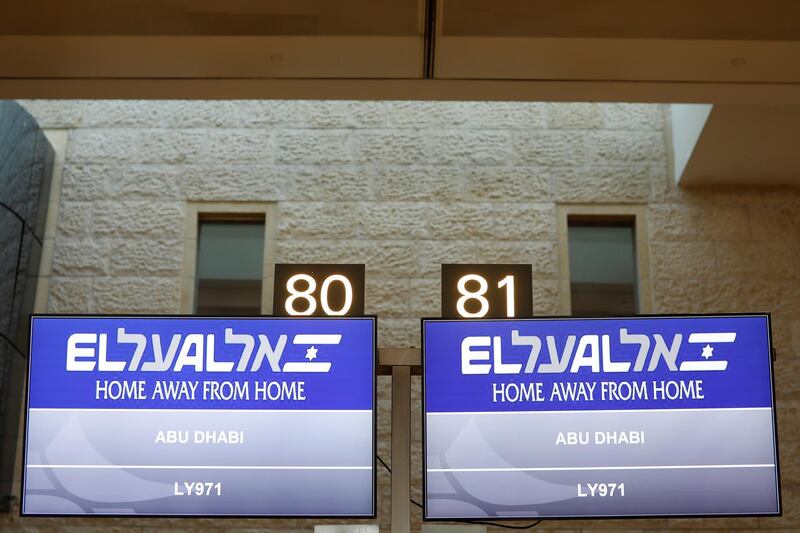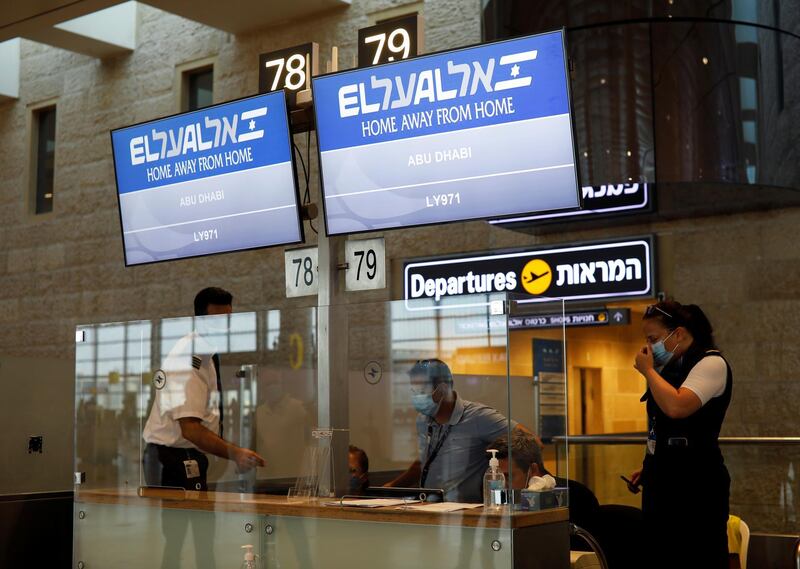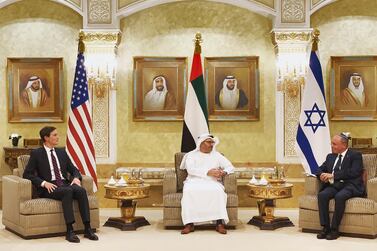The UAE and Israel hit another milestone on Monday as the first commercial flight between Israel and the UAE landed in Abu Dhabi after an agreement to normalise relations between them.
The historic El Al flight carried advisers of US President Donald Trump and Israeli Prime Minister Benjamin Netanyahu to the UAE to begin talks on details of the Abraham Accord.
Mr Trump’s senior adviser and son-in-law Jared Kushner, who has taken a leading role in Washington’s Middle East strategy and was on the flight, arrived in Israel on Sunday.
It is hoped that the visit will be an opportunity for businesses from the two heavyweight economies to begin forming ties.
The UAE ranks fifth in the world for GDP purchasing power parity per capita at $74,000 and Israel ranks 35th at $39,000.
Jared Kushner says 'stage is set' for Middle East progress
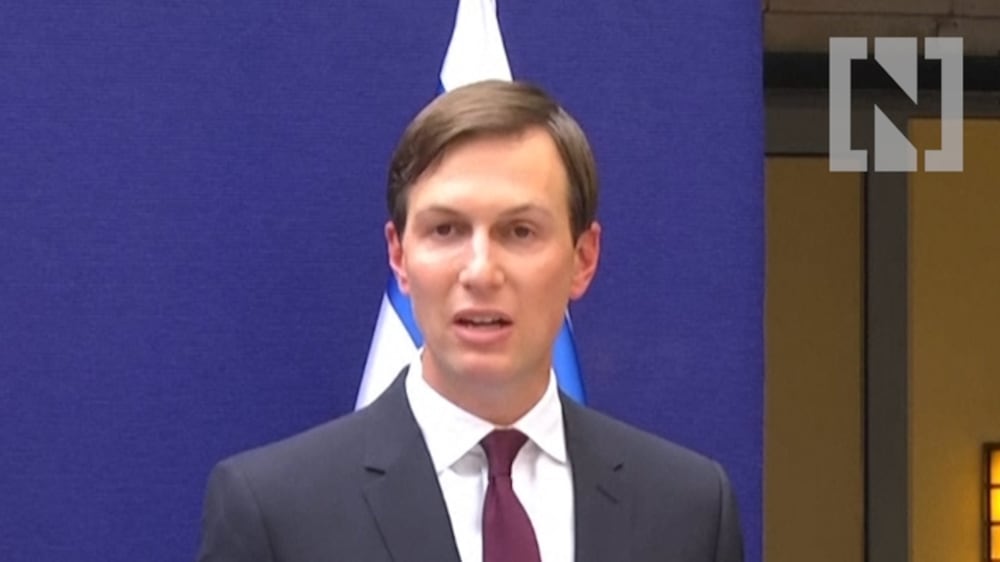
Economically, there is much for both nations to gain. Israel’s Channel 13 said bilateral trade could initially be worth $4 billion (Dh14.69bn) a year, a figure it said could soon be tripled or quadrupled.
Officials from the UAE and Israel also said they were looking to co-operate in defence, medicine, tourism and technology.
Dr Anwar Gargash, UAE Minister of State for Foreign Affairs, said last week that the UAE would benefit from the “technological prowess of Israelis in certain areas, and they will benefit from the dynamic nature of the UAE economy”.
The UAE is able to invest in innovative projects and Israel is home to some of the region’s most compelling start-up companies, including freelancer booking app Fiverr, while advertising platform Outbrain also has an office there.
Israeli Agriculture Minister Alon Schuster said Israel was working on joint projects that could help to improve UAE’s food security, such as water desalination and crop cultivation in the desert.
"With their money and our experience, we could go a long way," Mr Schuster said last Friday.
Israeli Regional Co-operation Minister Ofir Akunis said Israel was looking at co-operation in defence, medicine, agriculture, tourism and technology.
"We are talking about commercial deals worth $500 million in the initial stages and this will keep rising all the time," Mr Akunis said.
There could also be deals to revive the travel industry after the coronavirus and the damage it wrought on airlines, hotels and tourist attractions.
Almost half of Israelis travelled abroad in 2017, The Jerusalem Post reported, and it is common for young Israelis to spend time abroad at the end of their military service.
The UAE is well set to receive an audience curious about the Arab world, having been a window into the region for many western visitors for years.
In 2019, the country hosted more than 27 million hotel guests, the Federal Competitiveness and Statistics Authority found.
Israel also holds interest for Emiratis and residents. Although it has lower tourist numbers, it welcomed more than 4.5 million visitors in 2019.
